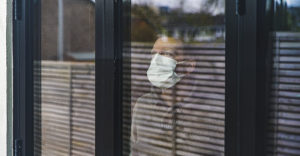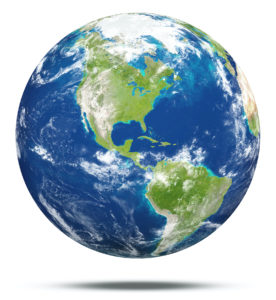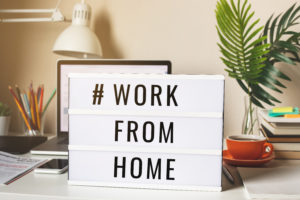By Aman Raina, SageInvestors.ca
Special to the Financial Independence Hub
The COVID pandemic has become the seminal moment in our lives. As of this writing, we are still well into growth phase of the virus but there are signs that the spread may be flattening out. The literal full-stop of our daily lives, socially, economically, and psychologically will be embedded in how we approach how we live, work, trade and invest much in the same way the Depression of the 30’s and the two world wars shaped the people of those generations.
What’s different is those periods were man-made. This episode has been driven by a virus introduced by Mother Nature. Unlike our parents and grand-parents, we are not hunkering in a bunker covering our ears while our countries get bombed or are being drafted to carry a gun and lie in rat infested bunker. We are isolating at home watching Netflix, baking bread, and washing our hands every 30 minutes. It’s different but I feel the impacts could be the same.
The COVID period like the Depression will also shape how we approach investing. Many research studies have delved into the investing behaviour of people living through the 30’s and 40’s and how much it shaped their decision-making and risk tolerances. The generations that are living through this period will have developed a value system, and biases that will shape their attitude, confidence, and ultimately how successful they will be as investors. We are seeing literally millions of people who have lost their jobs and livelihoods overnight. Their approaches to saving and investing will not be the same.
I’ve been thinking about how the events we are living through right now are going to influence our behaviours going forward and trying to map to how society and business will respond, adapt and subsequently mind map out possible new investing themes that could emerge. I haven’t tried to identify specific companies or stocks. In fact some companies probably don’t even exist right now. Times of stress can be viewed as opportunities. In between home schooling my kids, and answering many questions from worried people about how to manage their shell-shocked portfolios, I took a shot and put together some preliminary ideas and mind maps that may trigger some ideas to consider.
We’re not in charge
If isn’t clear now, it should be … we’re not in charge.
Up until now, the narrative regarding our earth and environment has been very superficial and revolved around the premise that the planet is getting hotter and altering our environment in profound ways. There has been an ideological debate about how valid this is. We’ve been conditioned to think that climate change is associated with extreme weather events such as hurricanes, flooding, tsunamis or mass earthquakes that level cities or bleaching of coral reefs. The other narrative that we have overlooked is at the molecular level which as we are discovering that while not as dramatic cinematically (Contagion movies not withstanding) viruses can be just as devastating. These debates are revolved on the premise that we as human beings are in charge and will dictate the rules of engagement with the planet. The planet will do what we tell it.
This is false.
What is incredibly clear is we as humans are not in charge of this narrative. The earth is … and the earth is not happy with us. It has watched as we fumble and delay and make excuses back and forth about respecting the planet. It has watched as we put a priority over material wealth, living vicariously through Kardashiean and Justin Beiber instagram posts and immediate gratification at the cost of the health of the planet. The earth has sat there politely and taken the abuse we have unleashed upon it.
The earth has had enough of all this. It has decided to give us a timeout and sent us to our homes to isolate and think about we have done.
We’re not in charge. The earth is in charge and if we want to live happy lives, we need to respect the earth. It has called a time-out on us. It is telling us the status quo is unacceptable and that we better get our sh$t together … now. Whatever attempt we have initiated to respect the planet have been superficial and full of platitudes.
Wall Street, Bay Street, Governments of all shapes and stripes are working under a narrative that once a vaccine is created, we’ll get our injections and go back “normal.” The stock market is pricing in this narrative. I think it’s completely wrong.
It’s going to cost us in so many ways …. and it’s going to make us better in so many ways.
Whatever happens, I’m convinced that whatever comes out of this event will be inflationary in the long-term. Everything is going to cost more and it’s going to take longer. The days of being spoiled with low cost of goods made in China, India, and wherever have ended. To live and function under this paradigm will require complete rethinks on how we will exist while respecting our planet and will require significant investment and behavioural changes. If we can identify these new paradigms then as investors we can participate and profit from these new paradigms. The core performance metric for investment decisions is making decisions that protect our purchasing power of our savings. We need to grow our savings to insulate us so we can afford the necessities we need in our older years to survive. Owning GIC’s won’t cut it. Heck we’re entering a world of negative interest rates! We will need to invest in people, ideas, goods and services. As investors we need to consider what these opportunities will look like in a post-COVID world.
The Earth is breathing better
During this time, as I walked around my neighborhood or went on what has become my more frequent jogs, I noticed how much more quiet the neighbourhood has been. The air has also felt crisper and cleaner. There seems to be less smog in the air. I thought it was just me but apparently in many parts of the world, air quality has dramatically improved as a result of the idling of the economies. For the first time in decades people in India can see the Himalayas, The traffic is quieter and I can drive to downtown in 5 minutes when it normally took 45 minutes. Who would have thought that a virus would create so much beauty in the world.
I don’t know about you but I like this and I suspect that we like this new arrangement and will want to keep it that way as much as possible.
Climate friendly products and services are now a default, not a theoretical concept. We’ve seen the proof of concept and we will want this be the status quo going forward, costs be damned.
It’s funny to watch OPEC countries trying to agree on cutting production as a result of the pandemic. It’s ironic that reduction at some point has a better chance of being permanent. Some of them are aware of it, most notably Saudi Arabia. All the arguing about oil prices is useless. They know the jig is up now. Coal, forget it. We could see a big push into electrical vehicles and solar based/geothermal forms of energy. There could be more willingness to invest in the infrastructure around it now.
Post COVID Theme – How we trade: Globalization gets re-calibrated
We have become dependent on sourcing goods from a few countries or from one part of the world. COVID has shown how risky this is. I suspect we will see a recalibration of how our goods and materials get sourced. Supply chains will become regionalized/localized. Congratulations Mr. Trump, you’re getting what you asked for, just realize that the cost of doing business will go up. With COVID, we may be more comfortable with the concept now. I expect we will be flattening our supply chains.
Post COVID Theme – How we wait: Reacquainting ourselves with time
COVID introduced or reintroduced us to the most precious and finite natural resource we have…time. When we have time, we think, we relate, we reset, we prioritize and we appreciate what is truly important during our finite personal existence. We reacquainted ourselves with reading, playing board games, talking and sleeping. During this time, I’ve been running 2-3 times per week compared to barely once a week pre-COVID. I’m getting more sleep now, almost 9 hours versus 6, and I’m feeing totally different, more at peace and not in a rush. I like it. I’m loosing weight!
Technology has been the enabler for achieving outcomes “yesterday”. Ordering food, buying things, asking questions, booking trips, buying and selling stocks all through your cellphone. The concept of waiting was going out of style. We want our products and services and we want it now and we want it exactly to our personal standards (extra whip, non-fat, decaf with wheat milk please). Then COVID. We found ourselves lining up to get into a grocery store, to wait in a single line to pay. We found ordering grocery online now takes a week with mixed results.
Speed kills.
COVID reintroduced us to waiting and that with waiting you can still get what you want when you need it. Maybe I just want a straight up cup of coffee. There was always the village idiots who complain, but I noticed people were very civil waiting be it for groceries or…donuts. It wasn’t a Black Friday riot. It was illuminating.
Technology, which was supposed to give us more free time, has done the opposite and has been the great destroyer of time at the cost of higher productivity. Maybe we went overboard on the productivity/immediate gratification? The question is does saving time in the grand scheme make sense personally and organizationally? We might be having the debate. When and if things ratchet back up and we start to lose that precious time, we may push back on some technology products and services and scrutinizing whether it is indeed creating more time for us. We won’t dump our smartphones cold turkey, but we w
on’t be upgrading them every year and camping out to get the next one.
Post COVID theme – How we work
Even if there was no COVID, the way we work has undergone an incredible change. Remote working has been well entrenched in many knowledge based industries, with offices acting as primarily drop-in/hotel locations for important meetings. Many offices have been transitioning to open-concept, low-wall workspaces, where people are cramped into small cramped spaces. COVID will create a serious rethink on how this will work. The open concept may be done. The return of walls may be at hand. Les Nesman would be proud. The materials used in offices may change. More health oriented materials in public/privates spaces such as copper which have shown to have properties that viruses do not like, compared to steel and plastic. Will the 21st century be the century of copper?
We may be going back to a Mad Men world. High cubicle, individual offices. The commercial real estate footprint potentially could shrink as working from home has now become more normalized. A return to high cubicle/offices. Smaller office footprints could be more prevalent because people will be working from home. Then what about those skyscrapers? A whole rethink will need to be done on how people come in, do their work and leave. Then there are the satellite support systems around it, like food courts and restaurants. They may need to be scaled back or even eliminated.
We may see pull back on the Rat Race. Slow and steady may now win the race. People have seen when everything slows down, many things that once were important don’t seem that important. We may be OK with it.
COVID has heightened the concept of flexible work hours as many of us have had to juggle working and raising/teaching our kids. Suffice to say, the 9 to 5 concept maybe a thing of the past. Work can be done anytime not within an artificial 8 hour fixed window. Because we may trend more to working from home, we may shed many of the work related items like formal clothing and transportation. We won’t be going to the snack shop or food court in the lobby anymore.
COVID has shown how critical a role that people on the lower end of the wage scale play in our society. The always have been important but they have over time been overlooked, underpaid, unprotected and vulnerable. We may see resurgence of unions who will fight to make sure they are appropriately compensated in pay and benefits. We may also see the diminishing of outsourcing and contract based work, which is especially suited to service based work. The concept of piecemeal work with no benefits has been highly exposed. People will demand some security now. This brings me back again to the prevalent theme for the future, it will all cost us more.
Post COVID theme – How we get paid.
The dark clouds have been there for years. Many people and businesses were literally a paycheque away from financial distress. We’ve gotten away with it thanks to almost a generation of low interest rates and cheap money. COVID exposed this dramatically. People and businesses were suddenly shuttered with no support mechanism. The time may be ripe for some sort of universal basic income model. It’s been discussed to death, but now we see where it may be ready for prime time. COVID has created a mass displacement of people. Some will not go back to their old jobs and careers. Some will be entirely replaced by machines. Retraining can only do so much. Again, this will not come cheaply. We also may be seeing the days of cash and coins and movement to electronic transaction based mechanisms.
Post COVID theme – How we nosh
Customization of how food is prepared when going out could be radically changed. First we may be entering a new world with fewer resto’s. We may see fewer menu items, and limitations on substitutions. That skinny, low fat macchiato with soy milk could be done. This could prove quite challenging with people with allergies. The serving process may even be different. Are the days of self-serve buffets and soft drink fountains done? Are we going back to the old “5 and 10’s” where you opened little doors to get your food? What will restaurants look like in layout and furniture choices? We’ve been seeing the emergence of ghost kitchens which have no seating and prepare food for takeout only. This may become more entrenched. All in all, how we eat out could look very different but could create new opportunities.
Post COVID theme – How we live
 While in isolation and distancing, I feel we are discovering or may reacquainting ourselves with qualities in living that we have overlooked or outright thrown away.
While in isolation and distancing, I feel we are discovering or may reacquainting ourselves with qualities in living that we have overlooked or outright thrown away.
Urban sprawl which has always been a bugaboo, may now get more traction. The negative was that we spend more time commuting and polluting. Well if technology is going to enable us to work more remotely, we won’t need to drive as much and we’ll be spending more time closer to our home. Space and more specifically land, if it wasn’t already sought after, may even become more so in demand COVID may spark another mad dash for real estate away from the urban hubs. If more people are working away from the office, then spacing Density and downtowns may become more of a dirty word in urban planning.
We may see a surge in home renovations that incorporate calibrating a portion of space for home offices. We also may see more home designed to accommodate multi-generation households. The tragedy of mass death at elderly care homes, will see people prefer to caring for their parents at home and will configure their homes. Shower and bedrooms on the main floor may be more common. With this geriatric care services become house calls. We could see the emergence of new types of furniture and materials and new types of technology. The smart home may become indeed very smart going forward because we may be spending more time there.
With distance and spacing a thing now, we could see a big push to investing to build out high speed broadband in suburban and far rurual areas.
Post COVID theme – How we shop and consume
Our shopping habits will change. Now that we realize the planet is in charge, we will be more conscious on how we shop. Throw-away fashion is done. Durable, quality apparel will be more in demand. This could be a boon for luxury retail. Fast fashion could be done.
We may see a shifting away from services. The biggest victim of this pandemic has been service-oriented businesses. Companies that make “stuff” were able to pivot and shift their models to make “stuff” that society needed like masks, shields, and scrubs. As supply chains become regionalized and localized, companies that make products could gain more prominence. We may see the re-emergence of manufacturing in our society. 3D printing technologies could now become more than a hobby. It could enable manufacturing to be done anywhere now. This will be expensive but I think society will be more accepting now.
In our isolation we may have discovered that we were becoming too dependent on people/companies for basic services that we can do on our own. Our homes haven’t been more cleaner than now because we are doing it ourselves and discover that we do a better job than paying others to doing it. Self-sufficiency has been heightened. Hell we all know how to make our own bread! Do-it-yourself, frugality, and minimalism could see an emergence in areas like, home renovations, cleaning, cooking.
Post COVID theme – How we learn
Before COVID there was great resistance by educators to implementing online/remote learning. COVID forced us to get comfortable…fast. In Ontario, teachers went on strike over it. Some fields and disciplines such as programing, business, math, and languages may be a good fit with remote learning tools, but more hands-on disciplines such as health and natural sciences, as well as more hands on fields such as mechanics may be more difficult, We may now start to question the whole university model. The concept of paying $50-60 thousand for the privilege of watching Zoom classes is going to be a difficult to justify as a value proposition. That being said there has been a bubbling cottage industry in online training courses as new online tools continue to evolve in providing an enriched learning experience. As long as we’re curious, we’ll find a way to learn.
Post COVID theme – How we play and exercise
Exercise is critical to our physical and mental well-being. We may have to do it very differently going forward. Health clubs, spas, and other community recreation clubs will look different and may become irrelevant. That being said, we may see the emergence of more public spaces that allow people to walk, run and bike. We may end up exercising at home more, so proper equipment will be needed. Bringing back the renovation theme, we may see homes carve out more dedicated space for exercise.
Then there are other forms of entertainment. Large mass gatherings like concerts, plays, musicals, and movies could be scaled down. Night clubs? Karioke nights? How relevant will they be now? Does it makes sense to pack in hundreds of drunk people into a basement size room? Home entertaining could become more prevalent, again, possibly requiring recalibrating the layouts of our kitchens and basements and all the furniture and toys that go around them. Virtual reality gaming could finally get its big moment.
The other major form of entertainment is going out to the ball game, hockey game or tennis match. Spectator and professional sports leagues are in for a major overhaul and may never be the same again. Does it makes sense to build 100 thousand seat stadiums? What happens to the Olympics? Local professional sports teams have created some many spin-off businesses that support and benefit from them, like catering, restaurants, and bars. The major driver of the NFL, NBA, NHL and Euro soccer leagues is television money. Media companies have dropped billions of dollars for content? What happens to them? Professional sports may never be the same.
Post COVID theme – How we travel
We will always need to get from A to B, but the way we get from A to B could look different. We’ve been freaked out to a point that we may be more hesitant to take public transportation. We may want our own cars. The appetite for electrical vehicles may explode now. Self driving cars may now get a bigger push. Flying is still a critical component but now we may see smaller aircraft which means more costs to fly.
Vacations may look different. The concept of All-Inclusive vacations which are based on the various low cost, self-serve formats for eating and drinking may suffer. A change to more a la carte formats, could make them more expensive and out of reach to wanderers. We’re already seeing new emerging formats of virtual travel.
Post COVID theme – Here come the robots
The best way to create distance between two people is to get rid of the 2 people and substitute robots. To control rising costs, automation tools may become more prevalent. We’ve had enough displacement of people because of Covid. Now we may get the second wave because of robots. With this displacement, we may truly need to have a conversation to figure out how to keep people from being displaced. We may see further ventures into universal basic income. A robot tax may not be far behind.
Post COVID theme – Social Media gets a timeout
We just may become bored of it, after getting forced to use it so much in isolation. We discover that it is not good for our mental well-being. Talking to people in person, even if at some arbitrary distance, is good for us. We need to do more again. While at first it may become more local, eventually we’ll become more comfortable travelling further distances. Again, it will cost more and may take more time.
I’m just brainstorming and throwing stuff out there. It is by no means all-inclusive. I’m more convinced now that we need a total rethink on how we function. This is not a bad thing. This can be a great thing for all of us in how we relate, work, live, and build wealth and security for our futures. Out of this new normal, new opportunities could emerge for people and organizations, some of which may not even exist. COVID is Mother Nature’s wake up call. She’s angry at us right now, but She is also patient and willing to support us, but we need to come up with an approach to living that takes her into account because if this episode is clear … we’re not in charge.
 Aman Raina, MBA is an Investment Coach and Founder of Sage Investors. Aman teaches new and experienced investors how to make educated and successful investment decisions so they can achieve financial freedom in their lives with confidence. Follow Aman on Twitter and Facebook. The original version of this blog was first published on May 6, 2020 and is reproduced (and updated) here with permission.
Aman Raina, MBA is an Investment Coach and Founder of Sage Investors. Aman teaches new and experienced investors how to make educated and successful investment decisions so they can achieve financial freedom in their lives with confidence. Follow Aman on Twitter and Facebook. The original version of this blog was first published on May 6, 2020 and is reproduced (and updated) here with permission.





